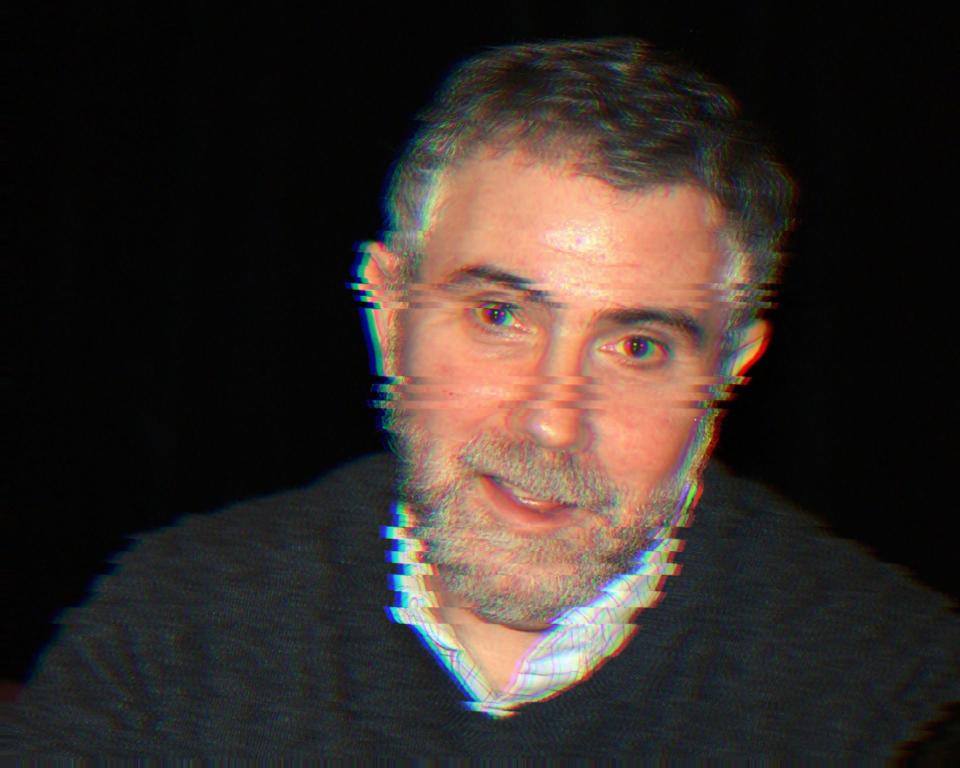Paul Krugman Is Having a Bitcoin Moment

Join the most important conversation in crypto and web3! Secure your seat today
Paul Krugman has been rugged by a centralized payments provider. Maybe he’s learning something new about the value of Bitcoin.
This morning, Wednesday March 8, the Nobel Prize-winning economist and longtime crypto skeptic took to Twitter to announce that the payments app Venmo has seemingly blacklisted him. And even he – one of the most famous and influential economic analysts on the planet – wasn’t getting any help, or even an explanation of the block, from the centralized platform’s customer service.
This article is excerpted from The Node, CoinDesk's daily roundup of the most pivotal stories in blockchain and crypto news. You can subscribe to get the full newsletter here.
“The software has taken control,” Krugman plaintively bleated.
Too busy to tweet. But not to vent. I've been using Venmo for years, but now it won't allow me to make payments. I spent a long time in chat with representatives, and they told me that they can't explain why — or fix it. The software has taken control.
— Paul Krugman (@paulkrugman) March 8, 2023
It’s a delicious moment for cryptocurrency advocates. One of their self-appointed adversaries has had his pants pulled down by the exact problem they’ve continually warned about: the threat of capricious, seemingly arbitrary financial censorship in the digital age.
And Venmo isn’t just any centralized payments tool: It’s one of the worst out there from a privacy perspective. Venmo sets new users’ transactions and notes to display publicly, by default, as part of its broader, deeply misguided goal of being a kind of social network for payments.
“We make it [public by] default because it’s fun to share [information] with friends in the social world,” a Venmo representative told CNET in 2021. “People open up Venmo to see what their family and friends are up to.”
This is quite obviously irresponsible, even malicious product design (though it has led to a few moments of incredible comedy). Krugman’s apparent openness to using such an anti-privacy product suggests he doesn’t spend a lot of time thinking about the issue.
But his shock at being suddenly deplatformed is even more revealing of his enduring biases. As Bitcoin advocates in his replies are crawling over each other to point out, while this may be an edge case for Americans and Europeans it’s an everyday reality for many residents of developing or unstable regions.
You do realize that this is most likely because of KYC AML policies that you support. Imagine what it is like for Billions in the world who are not even allowed access to payment networks like Venmo. Literally Billions of the world’s poorest. That is why #Bitcoin
— Bitcoin Beach (@Bitcoinbeach) March 8, 2023
Shortly after the initial tweet, Krugman followed up to announce that “tweeting got results” and his account “seem[s] to be up again.” This is hardly a vindication for Venmo – to the contrary, it’s a further demonstration of just how much Western elite privilege is baked into dismissals of uncensorable financial tools. It isn’t even clear whether Venmo reps were able to offer Krugman an explanation for his brief banning, highlighting the constant and opaque risk such services present.
See also: Coinbase-OFAC Bug Affected Fewer Than 100 People and Has Been Fixed
One might also ask Krugman exactly why he was being blocked from using Venmo. He himself has in the past argued that “unless you’re buying drugs, assassinations, etc.,” “trusting a third party” for payments is “not a big deal.”
were you trying to buy drugs or assassination? pic.twitter.com/5qghQizEu9
— Neeraj K. Agrawal (@NeerajKA) March 8, 2023
Personally, I’ve got a lot of respect for Krugman’s economic commentary and his public advocacy on a wide array of subjects. Here’s hoping his annoying run-in with the real risks of financial censorship helps open his mind about crypto, too.

 Yahoo Finance
Yahoo Finance 